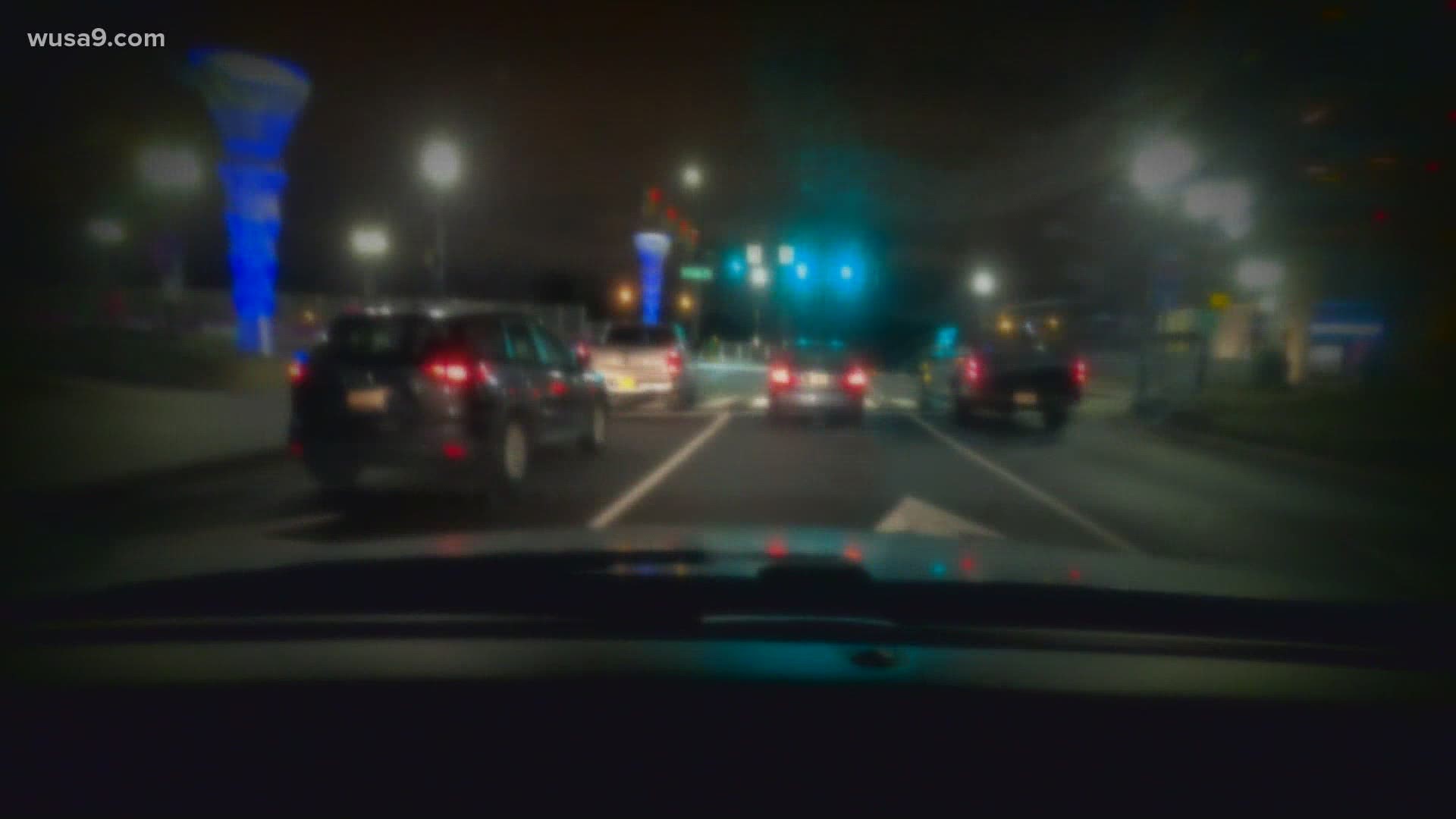FAIRFAX COUNTY, Va. — Christina Dempsey serves her community in a variety of ways.
The Northern Virginia resident is a firefighter and paramedic at Marine Corps Base Quantico.
In 2014, she also founded “3 Ribbons for 3 Reasons”. It is a group committed to fighting a problem that once devastated Dempsey’s family: distracted driving.
“In Aug. 2013, I lost my sister Bethany, my niece Lauren, and my little, soon to be niece Abby, she was seven, in a car crash,” Dempsey said.
According to Dempsey, a distracted truck driver was traveling about 55 miles per hour on an off-ramp when he collided with the back of her sister’s car. She said that crash ultimately led to an even larger collision involving six other vehicles.
“Bethany and Lauren were pronounced on the scene,” she said. “And, Abby died en route to the hospital.”
For the last six years, Dempsey pushed lawmakers to enact legislation that would stop similar accidents from happening on Virginia roads.
On Jan. 1, one of the biggest proposals Dempsey has fought for will become a reality. It will become illegal for Virginia drivers to hold a phone while driving.
“I just truly hope that people listen,” she said.
Under the new law, drivers who are caught with a cell phone in their hand in the new year will be subject to $125 on the first offense. A driver can expect a $250 fine for a second offense.
According to Virginia State Senator Scott Surovell, the journey to establishing a hands-free law in the Commonwealth has been a journey.
“As President Obama likes to say, progress is incremental,” he said.
Surovell and Virginia State Delegate Jeffrey Bourne sponsored the new distracted driving legislation.
Surovell said Virginia first tackled the distracted driving issue in 2007 when lawmakers passed a bill that made entering letters or numbers in a phone while driving a secondary offense. At the time, drivers could only be cited for the action if they were pulled over for another offense.
Surovell, a criminal defense attorney, said back then, he felt differently about distracted driving laws.
“I've seen a lot of people stop for what they felt were improper reasons,” he said. “And I felt like that law enforcement sometimes abuses their ability to stop people and that gave me concern.”
Surovell said the same mentality fueled opposition to this latest measure. He said some people still worry certain texting and driving laws can lead to other government restrictions and possible racial profiling from law enforcement.
But Surovell said his thinking on the issue changed in 2011 when the family of Kyle Rowley came to visit him.
A distracted driver struck and killed the 18-year-old driver while he was traveling on Route 7 not far from the border between Fairfax and Loudoun counties.
“It became very clear to me, very fast, that this is behavior that we need to start putting more legal restrictions on,” he said.
He said this latest law will address one of the major issues that appeared while enforcing Virginia's original texting and driving law.
“Police in Virginia basically just weren't writing it up,” he said. “Because it's impossible to show what somebody was doing with that phone in their hand. It was actually technically legal to chase Pokémon while driving or look at Facebook while driving.”
Janet Brooking, executive director of traffic safety awareness non-profit organization Drive Smart Virginia, said the new law is clear cut.
“It doesn't leave a lot of room for misinterpretation,” she said. “Either you're holding the phone or you're not.”
In 2009, the Virginia Tech Transportation Institute released a study showing dialing a phone while driving a car made the risk of a crash 2.8 times as high as non-distracted driving.
Brooking said she expects the new law will make Virginia’s roads safer.
“I think a key thing for people to realize about this law is that it is about saving lives,” she said. “So, it's about saving your life. It's about making sure that you don't take someone else's life. It really is a small inconvenience to take.
Maryland and DC already have similar hands-free driving laws on the books.
Brooking said she believes the existence of those laws will make it easier for Virginia drivers in the Washington region to adapt to the change.
“I expect because people from Northern Virginia probably work and travel in Maryland and Washington on a regular basis, they're already accustomed to a law like this,” she said. “I expect they will be the easiest ones to get acclimated to the new law because of their neighbors already having that law.”
For now, Dempsey just asks that all drivers keep their eyes on the road.
“At the end of the day, I really don't want other families to go through what our family still goes through,” she said.

